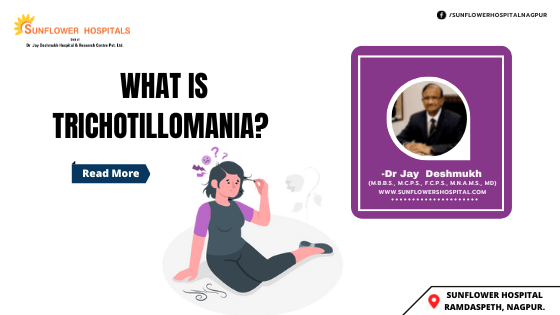Who does it affect?
Trichotillomania is common amongst children and adolescents. In young children and infants, it is self limit• ing and goes away on its own. The serious form appears between 10 and 13 years. In adults, it is more com• mon in women than men.
What do the individuals affected by trichotillomania suffer from?
Pulling your own hair can cause medical conditions such as skin irritation at the pulling site, infections and repetitive use of hand injuries. Some individuals with TTM ingest their hair and are at the risk of having trichobezoars, that is hairballs in the stomach. Later on, children may have anxiety disorders, mood disorders, substance abuse, eating disorders and personality disorders. Anxiety and disruptive disorders are common in adults.
How does trichotillomania affect our daily functioning?
It can impair school attendance and social functioning. Many children and young adults always fear that their friends could dis-cover their bald patches. They may expect peer rejection. Pulling
hair may impact family life, contributing to family arguments that can increase stress and further aggravate hair pulling. Individuals with TTM have an overpowering desire to pull hair. Most pull-out and stress are related to hair pulling. They have tricophagia and noticeable bald patches due to hair pulling.
What are the causes and risk factors?
Some people pull out their hair as a part of dealing with negative emotions. Sometimes there may be a family history. Childhood trauma may also be responsible for tri.
TRICHOTILLOMANIA or TTM is a psychological problem. A person compulsively pulls out or breaks their own hair. This falls under the classification of Obsessive-Compulsive Disorder (00). When severe it has a tremendous impact on the person’s personality, quality of life and happiness. hair from the scalp, some may even pull out hair from beards, eyelashes or eyebrows. Some may even eat the hair that they pull out. This is known as tri-geophagia. This causes significant problems in the gastrointestinal tract.
What are the main symptoms of trichotillomania?
Individuals pull out their own hair without awareness. They get a sense of relief after pulling out their hair. They are unable to stop hair pulling, despite repeated attempts to stop. They have severe anxiety trichotillomania.
What is the treatment for trichotillomania?
Many do not seek treatment as they consider it as only a habit and not a disease. Many do not seek a diagnosis for a variety of reasons. Behavioural therapy and medications may be beneficial for people with this condition.
What is behavioural therapy?
Most experts believe that habit reversal therapy which is a part of behavioural therapy might be effective in treating trichotillomania. These include awareness training, competing for response training, motivation and compliance, relaxation training and generalisation training.
What are the medications useful in the treatment of trichotillomania?
There have been rather very few trials for treatment. The present treatment includes Olanzapine, N- acetyl-cysteine and clomipramine as the drugs to have a significant treatment effect on trichotillomania.
What are the complications of trichotillomania?
Besides the enormous stress and performance failure at various points, 20% of people with trichotillomania eat their hair. This is known as tricophagia. This forms a hairball in the stomach. Some possible complications of trichobezoars include vomiting, nausea, pain in the abdomen and intestinal obstruction and anaemia. Sometimes they may need surgery to remove the hairball.
Trichotillomania is a rare medical disorder that can affect the per. son’s quality of life. Habit reversal therapy ( HRT) is often effective and is first-line therapy. There is ongoing research to find out the best possible medication. Any individual who has trichotillomania should see a physician, dermatologist, psychiatrist and counsellor to diagnose and treat this challenging disease.


